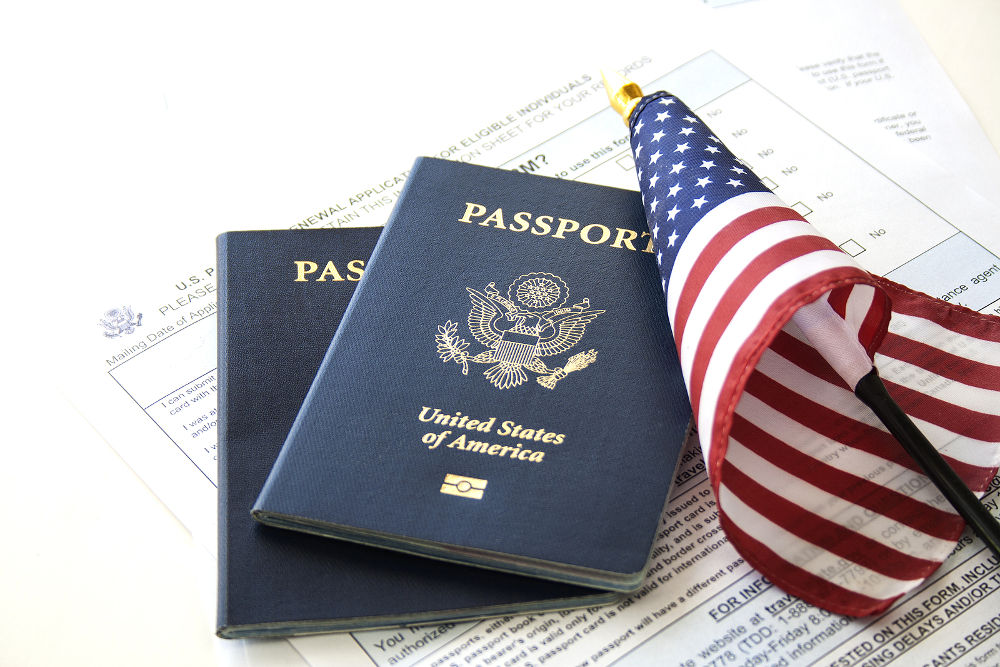When you consider the myriad benefits that come with US citizenship – which include living in one of the world’s wealthiest countries and participating in shaping the future of the nation through voting, as well as enjoying a thriving jobs market and access to a wide array of job opportunities and educational resources including federal grants and scholarships, it’s difficult to imagine why someone might want to give it up.
US citizenship grants individuals the freedom to travel globally with a US passport, offering visa-free or visa-on-arrival entry to numerous countries, and enjoy a sense of belonging and identity, connecting individuals to a diverse and vibrant community that celebrates the values of liberty, equality, and opportunity – so why exactly are a growing number of individuals opting to renounce their citizenship in pursuit of a better lifestyle?
In our increasingly interconnected world, the notion of citizenship transcends borders, and now more than ever, some are finding themselves reassessing their allegiance and considering alternative ways to achieve the life they’ve always dreamed of. For these individuals, renouncing US citizenship has become a strategic decision to unlock new opportunities, evade tax burdens, or embrace a more fulfilling way of life abroad.
Of course, it isn’t a decision to be taken lightly, and it doesn’t come without its challenges and complexities, either. There are legal, financial, and emotional aspects to be considered that will shape the trajectory of your global citizenship journey, and none of these should be underestimated or overlooked.
Even so, we’re seeing more US citizens than ever before opting to throw caution to the wind and make the move. Here, we take a closer look into the multifaceted nature of renouncing US citizenship and the motivations, challenges, and implications associated with this life-altering decision so that if you’re toying with the idea, you can work out once and for all whether it’s the right decision for you.

Motivations for renunciation
The decision to renounce US citizenship is rarely driven by one factor alone; in fact,there are myriad reasons that someone might come to such a monumental decision. These range from economic considerations to personal ideologies; high-income earners, for example, may seek to escape the burden of US taxation on worldwide income by embracing citizenship in countries with more favourable tax regimes, and by all accounts, this is an increasingly common reason for the decision. We’re also seeing digital nomads, who typically move around the world working from various locations, opting to do so for similar reasons, having found more advantageous circumstances to suit their needs elsewhere.
For others, it’s more about the allure of a simpler lifestyle than any financial gain, with the idea of freedom from the constraints of corporate America and the hustle and bustle of urban living proving an attractive prospect.
For US citizens living in the UK, the decision to renounce their US citizenship and embrace British life has, amongst other reasons, been motivated by access to better healthcare, with the NHS proving an appealing alternative to costly health insurance – and a better work/life balance is also an attractive prospect, with most jobs in the UK coming with greater annual leave allowances.
And for a select few – albeit the minority – renunciation served as a symbolic gesture of dissent against political ideologies or foreign policies they no longer align with. We’re seeing a growing number of individuals grappling with such feelings, but very few would go to such great lengths to make their position known. Nevertheless, it can happen, and it is – and each person opting to renounce their citizenship has their own unique set of reasons for doing so.
Navigating the legal landscape
Renouncing US citizenship carries significant legal implications and requires adherence to strict procedural requirements, so it’s vital that if you’re considering taking the plunge, you’re well aware of what doing so might entail. First, you’ll need to undergo a formal renunciation process, typically conducted at a US consulate or embassy abroad, and swear an oath of renunciation before a consular officer. You’ll also be required to demonstrate compliance with US tax obligations and may be subject to an exit tax on certain assets exceeding a specified threshold.
Navigating the legal intricacies of renunciation isn’t a journey to be undertaken alone, and enlisting the guidance and support of legal professionals well-versed in immigration and tax law is paramount to ensure the process runs smoothly. Otherwise, you could be setting yourself up for months – if not years – of stress and uncertainty, so consider it a worthwhile investment.

Financial considerations
Financial considerations often play a central role in the decision to renounce US citizenship, and weighing up the potential benefits against the costs of relinquishing your ties to the US is essential. Sometimes, doing so isn’t a financially savvy move, so don’t make any assumptions without doing the relevant homework first.
Renouncing citizenship may afford tax advantages, particularly for high-net-worth individuals seeking to minimise their tax liabilities, but it isn’t the case for everyone and may also come with a set of less than favourable financial consequences attached, such as the loss of access to certain benefits and privileges associated with US citizenship. Social security benefits and Medicare coverage, for example, will no longer be available to you, so if these are important to you, as they are to most, then it’s worth looking into what your new citizenship will offer you in this regard and whether it measures up.
It’s also worth bearing in mind that renunciation could impact your ability to maintain financial accounts or conduct business transactions in the United States and abroad, so be sure to assess how this might affect you and whether it’s a move you could in any way come to regret before going full steam ahead.
Social and emotional consequences
Renouncing US citizenship is a deeply personal decision that can evoke a range of emotions, and whilst some of these may be positive, others may not. Feelings of liberation and excitement may come first, but uncertainty and nostalgia are also likely to play a role, so being prepared for these and how they may affect you is key. Relinquishing your ties to your country of birth or naturalization is a move that will set the wheels in motion for a significant emotional journey, and feelings of loss, identity crisis, or even guilt are common even amongst those approaching the process from a highly positive stance. Familial and social relationships may also be negatively affected, as not everyone will understand your reasons for making such a dramatic decision and they may also find themselves grappling with the implications of this life-altering choice.
Navigating the emotional and social ramifications of renunciation can be something of a rocky road, so be prepared for some in-depth introspection, be ready to communicate openly with friends and family, and enlist in support from trusted confidants and mental health professionals to help get you over the finish line.

Embracing a new lifestyle abroad
Despite the legal, financial, and emotional complexities associated with renouncing US citizenship, the decision to renounce your US citizenship can, for the right person and the right set of circumstances, serve as a gateway to a new and enriching lifestyle abroad. Everyone has their own vision in mind after leaving the States, whether it involves relocating to a bustling European metropolis or living the good life on the serene beaches of Costa Rica, and solace can be found in the freedom to pursue new entrepreneurial ventures, embrace alternative models of healthcare and education and immerse oneself in a new culture. For some, renunciation is about more than just leaving behind the United States but also embracing a global citizenship that transcends borders and fosters a sense of belonging to the world at large.
The bottom line
Renouncing US citizenship is a deeply personal and complex decision that requires careful consideration of legal, financial, emotional, and social factors – but for some, it offers the better lifestyle they have always dreamed of. Not everyone will understand the move, but ultimately, it comes down to what is right for you and your future, and as the world becomes increasingly interconnected, the pursuit of a global citizenship that aligns with one’s values, aspirations, and priorities is at an all time high.






















